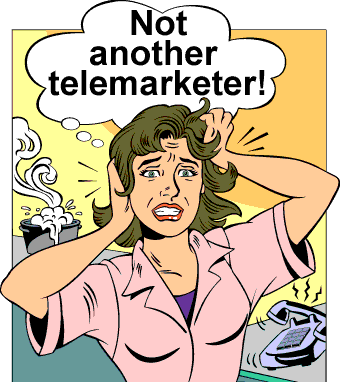
Like most Government programs, compliance was meant to be voluntary. The Do Not Call Registry was opened on June 27, 2003. It contains a registry of 209,000,000 million phone numbers. Even if you follow the telemarketer’s instructions to be removed from their calling service, it does not work. Millions of Americans continue to get unwanted and unsolicited telemarketing calls. Why?
Political calls are exempt; charitable calls are exempt; survey takers calls are exempt; and companies with which you have an established business relationship are exempt. By law, your credit card company has to send you a sheet of disclaimers and what it does with the information that you have given it. Look closely. In many, if not most cases, your information is sold to firms that the credit card company does business with or has a business relationship with. Calls placed from out of the country are exempt. So if your credit card company has a call center in Pakistan, you will receive all the unwanted calls that it can generate from Pakistan.
Technology is causing havoc with the Do Not Call List. Robocalls use what is called “spoofing” which lets callers hide or disguise the phone numbers appearing on your caller ID. Robocalls are prerecorded messages made with an autodialer that tries every phone number in sequence. Last month Robocall complaints reached an all time high of 212,000. Robocalls are hard to trace and cheap to make. Robocalls are illegal unless they are part of one of the exempt categories. During periods when elections are held, Robocalls can go into the hundreds of thousands of calls daily.
Telemarketers change called ID information often and can have access to hundreds of out bound 800 numbers so it does little good to block their numbers.
Typically the FTC goes after only the worst offenders and really doesn’t investigate individual complaints. I have to wonder how much money it is costing the American taxpayers to maintain a registry that is barely being enforced.








